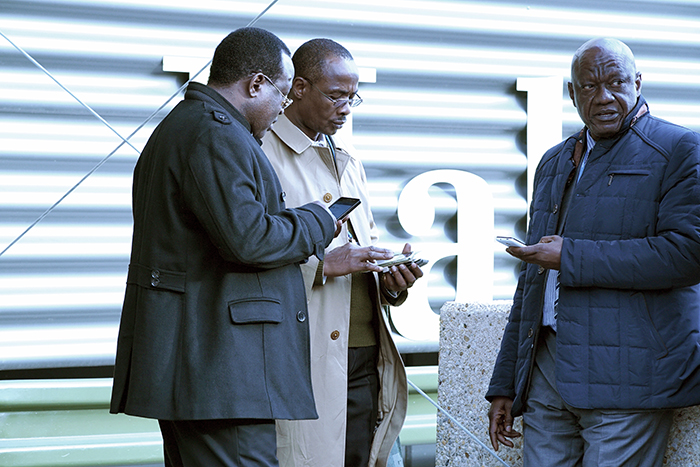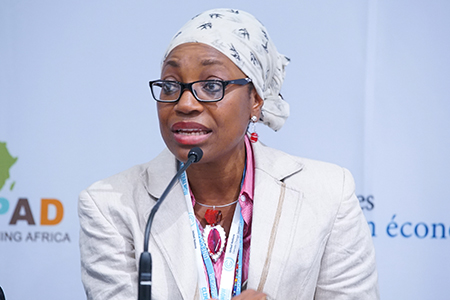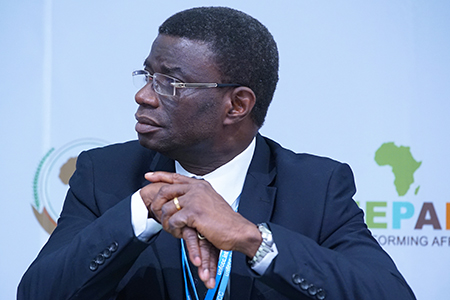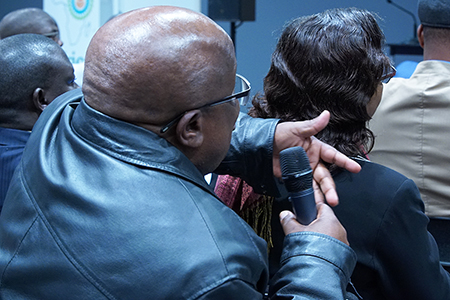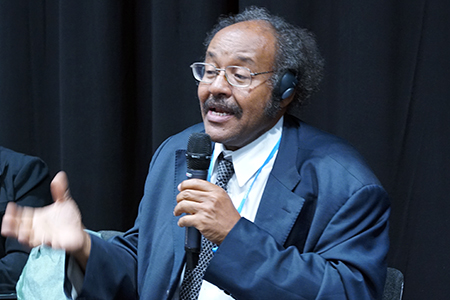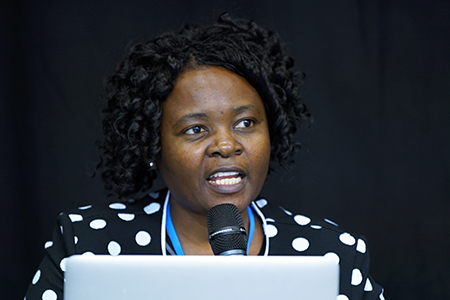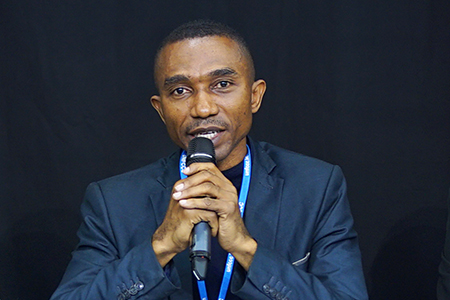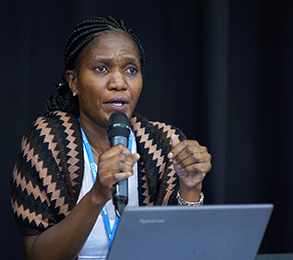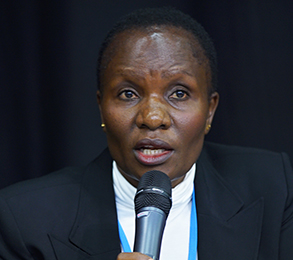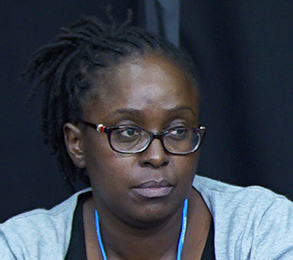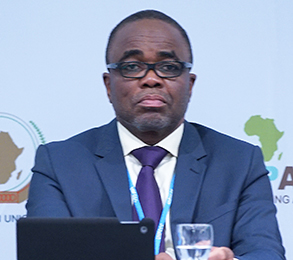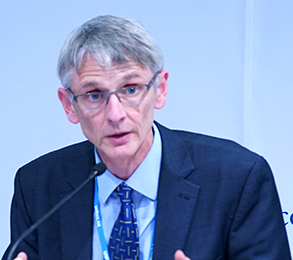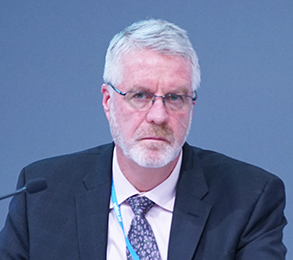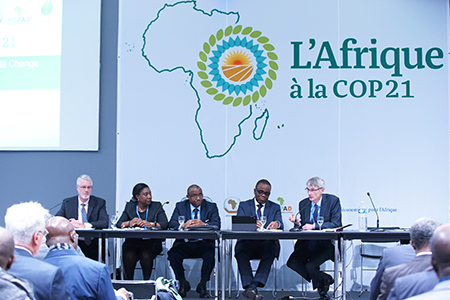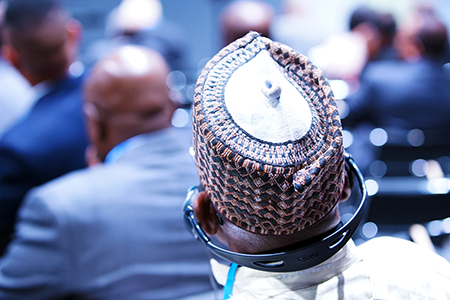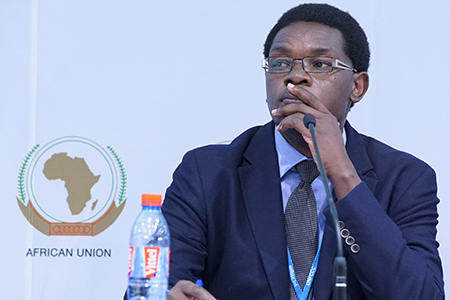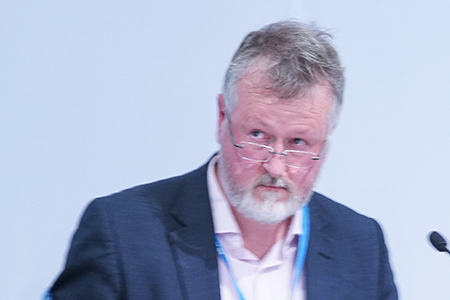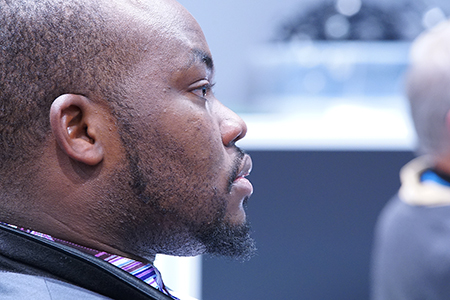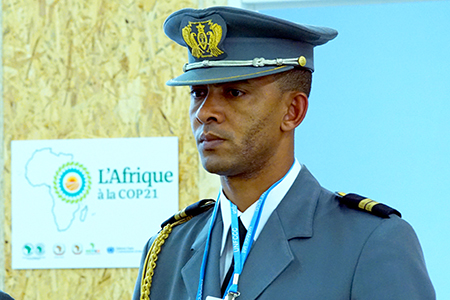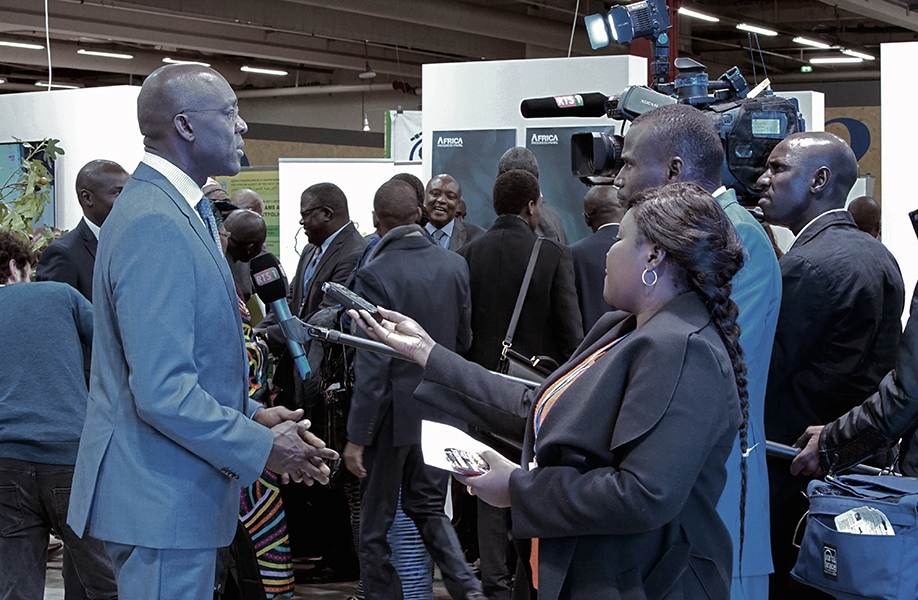Language:ENGLISH | FRANÇAIS |
||
Receive ENB+ Meeting Reports |
||
|
Receive our ENB+ bulletins and reports by email: |
||

| Follow @enbclimate | ||

Loading... |
||
|
Receive emailed updates with the news articles above plus related information and announcements from our CLIMATE-L community mailing list: |
||
|
The event "10 million trees, 10 million souls" focused on a project in Benin that aims to plant 10 million trees, one for each of the 10 million inhabitants of Benin. Théophile Chabi Worou, Minister of Environment, Benin, moderated and presented during the event. He noted that the project was first launched during the UN Conference on Sustainable Development (Rio+20 Conference) in 2012, by the President of Benin, and said he believes the initiative can serve as an example to other African countries. Fatima Denton, Director, Special Initiatives Division, UN Economic Commission for Africa (UNECA), said that “if all Africans could plant a tree, we could save the continent and contribute to reductions of greenhouse gases globally.” She noted that despite the important role of trees deforestation is on the increase in Africa, which is the second most deforested continent. She underscored UNECA’s continued support for the initiative and said that it will continue to work relentlessly to protect the planet and its people. Kakpo Théophile, Director General, Direction des Forêts et des Ressources Naturelles, Benin, further outlined that the "10 million trees, 10 million souls" project aims to improve life in both urban and rural areas and with a view to mitigate climate change, preserve biodiversity and fight desertification. He noted the importance of building capacity for all stakeholders involved in the project and that awareness raising and communication are necessary for the population to understand what is at stake and to take part in the project. He outlined that they are working with over 200 nurseries and have grown over 2 million tree seedlings so far. He expressed a wish for the project to be extended regionally throughout Western Africa so that the project can plant more than 60 million trees. During the ensuing discussions participants commented on, inter alia: replication of the project in other parts of Africa; whether the initiative is a project or a programme; timber import and production; and the type of trees planted and whether the trees are indigenous and grown in plantations. Minister Worou, responding to a question on implementation of the initiative, said that implementation starts with planting seedlings but that protecting those seedlings as they grow poses a severe challenge which is why they have partnered with NGOs. Concluding, he highlighted that during COP 21 the President of Benin will present a new project called “light for all” which aims to provide every household in Benin with at least one light bulb within six months. | ||
|
|
|
|
|
Audience members question the panelists | ||
|
||||
Gender, Climate Change and Sustainable Development in Africa:
Challenges and Opportunities Post 2015 Agreements
Presented by: Climate Change and Peace Building Focal Point
|
The event on Gender, Climate Change and Sustainable Development in Africa was moderated by Sam Ogallah, Programme Manager, Pan African Climate Justice Alliance. He opened the event saying that the effort is to strengthen the African Group's position on the issue of gender and climate change. He said the issue of gender includes men, people with disabilities, and others. He noted that gender has been dealt with on an ad hoc basis and that it needs to be operationalized into a set of policies. Winfred Lichuma, Chairperson, National Gender and Equality Commission, Kenya, said that gender desegregation is a missing link in the UNFCCC process and there is a need to integrate gender into the negotiations. She said that climate change must be understood through the gender lens. Judith Kamoto, Head, Forestry Department, Lilongwe University of Agriculture and Natural Resources (LUANAR), presented on mainstreaming gender in climate actions, describing Malawi’s experience in the forest sector. She noted that gender disparities are entrenched in the culture, decisions over land are usually made by men, and that women have time constraints that impede them from participating in community governance on forests. Regarding community based forest management under REDD+, she recommended having full time gender specialist staff, raising awareness about gender implications and benefit sharing, ensuring equal access to forest resources, empowering women in participation and overcoming institutional and socio-cultural barriers. Maria Phiri, Gender and Climate Change Expert, Common Market for Eastern and Southern Africa (COMESA), said that climate change is about human development, and that it cannot be discussed in relation to future development pathways without addressing gender. She underscored the need for inclusivity and empowerment of women, and said that the Paris agreement must be a “gender responsive platform.” She emphasized the need to bring diverse stakeholders on board and said that the issue of gender is the issue of participation of all people. She underscored that sustainable economic growth requires all stakeholders to participate in terms of input in order to benefit from the output. Emma Bowa, Kenya Programme and Advocacy Manager, CARE International, said that when discussing gender issues in relation to climate change, it is important to talk not only about exposure, sensitivity and capacity, but also about roles and responsibilities. Regarding the Paris agreement, she said that it is important to recognize that women are not just a homogenous block and that more important than just counting the number of women who are represented, it is essential to build agency and improve relations between men and women. During discussions, panelists noted that, inter alia, gender should be considered in the entire text of the Paris outcome, negotiators should insist on rights-based language since human rights includes gender and that gender not be sidelined to a “women’s issue.” | ||
|
|
|
|
|
|
||||
Financing Climate Change in Africa - NEPAD Climate Fund Presented by: The New Partnership for Africa's Development (NEPAD)
|
|
The event on Financing Climate Change in Africa was moderated by Timothy Mealey, Senior Partner, Meridian Institute, and discussed the NEPAD approach to financing climate change adaptation and mitigation as well as other innovative approaches to climate finance such as African Risk Capacity. Estherine Fotabong, Head, Programme Implementation and Coordinator Directorate, NEPAD , said that African countries have not benefitted fairly from international climate finance mechanisms. She presented the NEPAD Fund which is designed to meet the challenges of African countries and that so far has implemented projects in 11 African countries. She called for development partners to contribute funding to NEPAD to scale up and boost action on the ground in Africa. Luc Gnacadja, former Executive Secretary, UN Convention to Combat Desertification (UNCCD), spoke about the Local Climate Adaptive Living Facility (LoCAL) and highlighted that the facility aims to channel funding to the local level to transform governance systems. He highlighted that Africa cannot depend on others for money and needs to mobilize national and local resources first and then subsequently harness international finance to catalyze local action. Mohamed Beavogui, General Manager, African Risk Capacity, said it makes sense to invest in the climate economy and in disaster insurance. He highlighted that African Risk Capacity is an innovative mechanism to accelerate the finance of disaster response with between seven to ten dollars return on each dollar spent when a disaster occurs. He argued that Africa cannot always ask for handouts and should rather build sustainable measures and systems to address and finance climate change adaptation and disaster risk reduction. Sam Bickersteth, Chief Executive Officer, the Climate Development Knowledge Network (CDKN), highlighted that there is a “colossal gap” in climate finance in Africa with respect to what the estimated need is and what is received. He argued for the necessity to use a mixture of solutions between private and national finance and that he is currently witnessing a move towards a payment by results system in climate finance where 30% of funding is given up front, 60% depends on outputs and 10% on outcome. John Kufuor, former President of Ghana, emphasized the need to ensure that Africa gets the support it needs to be able to shoulder its responsibilities in the fight against climate change. He said that Africa is a victim continent in that it has contributed the least but suffers the most from climate change. He argued that Africa needs to fight the doubt and suspicion often placed on it regarding corruption and one way of doing so is by utilizing credible African financial institutions such as NEPAD and the African Development Bank (AfDB). He outlined the need for Africa to negotiate with the private sector to ensure win-win outcomes for both countries and the private sector to ensure that Africa does not relapse into being exploited once again. Discussions ensued on, inter alia: the role of AfDB in NEPAD and African Risk Capacity; and the role and regulations regarding safeguards and gender in NEPAD projects. | ||
|
|
|
|
|
|
||||
Other Events
|
|
|
|
|
|
|
|
|
The Africa Pavilion @ COP 21 Bulletin © <enb@iisd.org> is a special publication of the International Institute for Sustainable Development (IISD). This issue has been written by Dina Hestad and Brett Wertz. The Digital Editor is Liz Rubin. The Editor is Tomilola Akanle Eni-ibukun, Ph.D. <tomilola@iisd.org>. The Director of IISD Reporting Services is Langston James “Kimo” Goree VI <kimo@iisd.org>. Funding for coverage of the Africa Pavilion at COP 21 has been provided by the UN Economic Commission for Africa (UNECA). The opinions expressed in the Bulletin are those of the authors and do not necessarily reflect the views of IISD and funders. Excerpts from the Bulletin may be used in non-commercial publications only with appropriate academic citation. For permission to use this material in commercial publications, contact the Director of IISD Reporting Services at <kimo@iisd.org>. Electronic versions of issues of the Africa Pavilion @ COP 21 Bulletin can be found on the IISD Reporting Services website at http://enb.iisd.org/climate/cop21/cdafrica-ap/. The IISD team at the Africa Pavilion at COP 21 can be contacted by e-mail at <brett@iisd.org>. |
||
